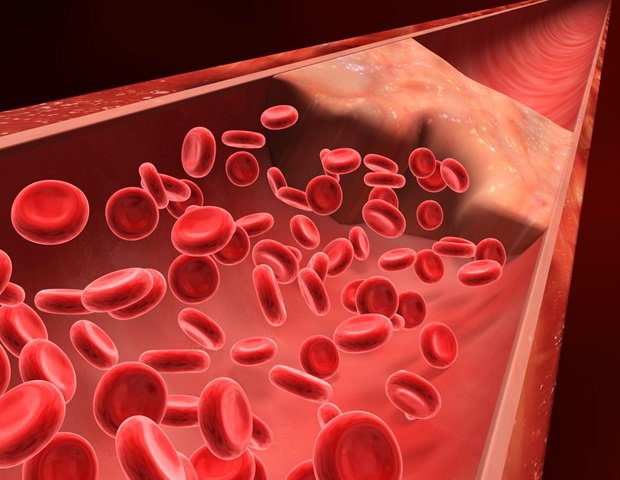When diagnosed with a blood clot or atrial fibrillation, patients are often prescribed anticoagulants or blood thinners to prevent a future clot.
In a study of the three most commonly prescribed blood thinners, the oral anticoagulant rivaroxaban, known by the trade name Xarelto, was associated with a significantly higher risk of bleeding complications than apixaban (trade name Eliquis) and warfarin for patients with blood clots or atrial fibrillation.
The findings, reported at the 2023 American Society of Hematology Annual Meeting & Exposition, covered more than 10 years of patient data from the Michigan Anticoagulation Quality Improvement Initiative registry. The multicenter initiative is sponsored by Blue Cross Blue Shield of Michigan.
“We found the highest bleeding rates among patients who received rivaroxaban, followed by warfarin and then apixaban,” said Jordan K. Schaefer, MD, first author and clinical associate professor of hematology at the University of Michigan Medical School.
“We followed patients for over two years on average and were able to compare apixaban with rivaroxaban, which has not yet been done in a randomized clinical trial. Although the findings should be confirmed in randomized trials, they may have implications for providers as they choose anticoagulants for their patients.”
Through their analysis, the researchers found that if 100 patients were followed over a year, rivaroxaban resulted in nearly 40 bleeding episodes compared to about 25 for warfarin. Bleeding events were similar between apixaban and warfarin, but the latter drug was associated with more severe bleeding.
The rate of blood clots was higher with apixaban compared with warfarin, but the researchers say that appeared to be largely driven by other thrombotic events, which included events such as heart attacks.
Of the three drugs, apixaban was associated with a lower mortality rate than rivaroxaban and warfarin.
These three drugs are the most commonly prescribed anticoagulants for thrombosis and atrial fibrillation, and it is important that we continue to explore their potential impact as we strive to better serve our patients.”
Geoffrey Barnes, MD, M.Sc., senior author and associate professor of cardiology-internal medicine at UM Medical School
Additional authors include Josh Errickson, Ph.D., Xiaowen Kong, Naina Chipalkatti, MD, Brian Haymart, RN, Suman L. Wood, MD, MSCE, and James Froehlich, MD, MPH, all of the University of Michigan, Mona A .Ali, PharmD., Corewell Health William Beaumont University Hospital, Scott Kaatz, DO, M.Sc., Gregory D. Krol, MD, both of Henry Ford Health.
Source:
Journal Reference:
Schaefer, JK, et al. (2023). Comparison of bleeding events among patients receiving Apixaban, Rivaroxaban, and Warfarin for atrial fibrillation and/or venous thromboembolism. Blood. doi.org/10.1182/blood-2023-184457.
